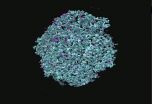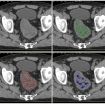How do you really feel about the cake? Emotional awareness promotes healthier eating
2014-11-11
(Press-News.org) As obesity rates rise, health professionals and policy makers scramble to help consumers resist unhealthy eating choices, often focusing on better labeling and improved nutritional knowledge. According to a new study in the Journal of Marketing Research, however, training people to pay attention to their emotions is a far more powerful strategy.
"Consumers are often mindless," write authors Blair Kidwell (Ohio State University), Jonathan Hasford (Florida International University) and David M. Hardesty (University of Kentucky). "We not only demonstrate that emotional ability is trainable and that food choices can be enhanced, but also that emotional ability training improves food choices beyond a nutrition knowledge training program."
Study participants were given general training in recognizing basic emotions in themselves and in others, after which they were exposed to a variety of food products and packaging and asked to notice what emotions they, and others, were experiencing. After the training, both the trained participants and people who had received no training were given the opportunity to choose a snack of either a healthy item or a chocolate bar. Those who had received the training were more likely to choose the healthy item.
Three months later participants in both groups were weighed: Those who had received training in recognizing their emotions had, on average, lost weight whereas those who had received no training had actually put on weight.
The authors conclude by urging consumer educational programs to put less focus on reading nutritional labels and to instead encourage exercises that enhance emotional awareness.
"With a better understanding of how they feel and how to use emotions to make better decisions, people will not only eat better, they will also likely be happier and healthier because they relate better to others and are more concerned with their overall well-being."
INFORMATION:
Blair Kidwell, Jonathan Hasford, and David M. Hardesty. "Emotional Ability Training and Mindful Eating." Forthcoming in the Journal of Marketing Research. For more information, contact Blair Kidwell (kidwell.82@osu.edu).
ELSE PRESS RELEASES FROM THIS DATE:
2014-11-11
The American obesity epidemic is out of control, and health advocates are working hard to ensure that food labels clearly list calorie content and all unhealthy ingredients. But according to a new study in the Journal of Marketing Research, labeling alone contributes little to healthier eating decisions unless the item also costs more.
"Obesity rates have more than doubled in the past two decades, and large-scale interventions are necessary to dissuade people from consuming unhealthy food," write authors Avni M. Shah (Duke University), James R. Bettman (Duke University), ...
2014-11-11
Cities around the world are pouring money into beautiful bicycle paths in hopes of convincing citizens to drive less and bike more. According to a new study in the Journal of Public Policy & Marketing, however, getting people to go from four to two wheels isn't quite that simple.
"Although bicycling is a widely accepted way to travel around cities in Germany, Denmark, and the Netherlands," write authors Marius C. Claudy (University College, Dublin) and Mark Peterson (University of Wyoming), "it is still the most underutilized form of transportation in countries such as ...
2014-11-11
Reserve's borders have erroneously moved 50 kilometers
New species, named after the Luama Katanga Reserve, is now threatened by cattle ranches and forest destruction
NEW YORK (November 11, 2014) - WCS scientists in the Democratic Republic of Congo (DRC) have discovered a new species of plant living in a remote rift valley escarpment that's supposed to be inside of a protected area. But an administrative mapping error puts the reserve's borders some 50 kilometers west of the actual location. Now the new species, along with 900 other plant varieties and 1,400 chimpanzees, ...
2014-11-11
For their study, the researchers were able to fall back on uninterrupted long-term temperature measurements of groundwater flows around the cities of Cologne and Karlsruhe, where the operators of the local waterworks have been measuring the temperature of the groundwater, which is largely uninfluenced by humans, for forty years. This is unique and a rare commodity for the researchers. "For us, the data was a godsend," stresses Peter Bayer, a senior assistant at ETH Zurich's Geological Institute. Even with some intensive research, they would not have been able to find a ...
2014-11-11
Many businesses now offer customers the opportunity to make charitable donations to good causes along with their purchases, but does this really encourage the customer to buy more? According to a new study in the Journal of Marketing, the answer is a firm "Yes."
"The mere presence of a charitable donation opportunity can generate significantly more sales," write authors Michelle Andrews (Temple University), Xueming Luo (Temple University), Zheng Fang (Sichuan University) and Jaakko Aspara (Hanken Swedish School of Economics). "Offering the donation nearly doubled the ...
2014-11-11
When consumers see a company performing good deeds, they often assume that the company's products are healthy. According to a new study in the Journal of Public Policy & Marketing this may be far from true, and the company's socially responsible behavior may be creating a "health halo" over unhealthy foods.
"Research demonstrates that consumers frequently engage in inference making when evaluating food products. These inferences can be highly inaccurate, leading to unintended, unhealthy consumer choices," write authors John Peloza (University of Kentucky), Christine Ye ...
2014-11-11
A novel method of altering a protein in milk to bind with an antiretroviral drug promises to greatly improve treatment for infants and young children suffering from HIV/AIDS, according to a researcher in Penn State's College of Agricultural Sciences.
That's critical because an estimated 3.4 million children are living with HIV/AIDS, the World Health Organization reports, and nine out of 10 of them live in resource-limited countries in sub-Saharan Africa, where effective antiretroviral treatments still are not widely accessible or available. International medical experts ...
2014-11-11
Enterotoxigenic Escherichia coli (ETEC) bacteria are responsible each year for around 400 million cases of diarrhoea and 400,000 deaths in the world's low- and middle-income countries. Children under the age of five are most affected.
ETEC bacteria also cause diarrhoea in nearly one in two travellers to these areas.
Major breakthrough
Researchers at the University of Gothenburg's Sahlgrenska Academy are world leaders in research into ETEC and have now made a major breakthrough in collaboration with colleagues from the Wellcome Trust Sanger Institute in the UK, Karolinska ...
2014-11-11
As football players are learning, a violent blow to the head has the potential to cause mild to severe traumatic brain injury -- physical damage to the brain that can be debilitating, even fatal. The long-term effects run the gamut of human functioning, from trouble communicating to extensive cognitive and behavioral deterioration. To date, there is no effective medical or cognitive treatment for patients with traumatic brain injuries.
But a new study from Tel Aviv University researchers points to an "enriched environment" -- specially enhanced surroundings -- as a promising ...
2014-11-11
Technology developed at the University of Sussex helps hospitals make earlier and more accurate treatment decisions and survival assessments for patients with bowel cancer.
Bowel cancer kills more than 16,000 people a year in the UK, making it the nation's second-most common cause of cancer death (after lung cancer).
A novel medical-imaging technology, TexRAD, which analyses the texture of tumours, has been shown in trials to enable early diagnosis of those bowel-cancer patients not responding to the standard cancer therapy better than other available tumour markers. ...
LAST 30 PRESS RELEASES:
[Press-News.org] How do you really feel about the cake? Emotional awareness promotes healthier eating



